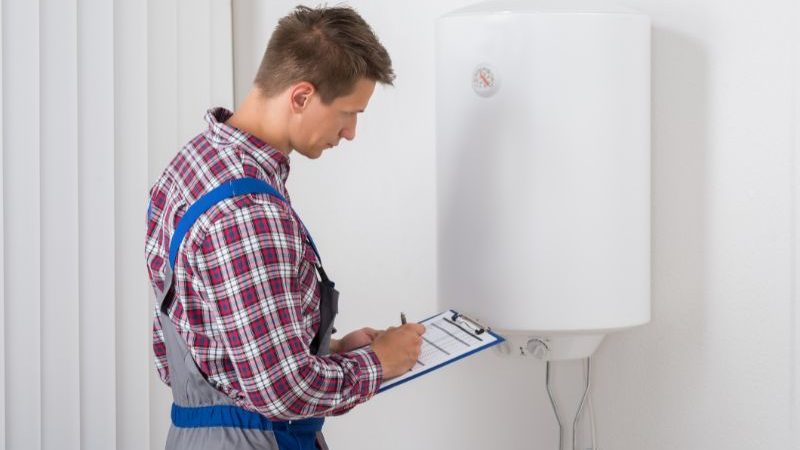As the cold weather creeps in, you may be wondering how to prepare your boiler for the winter. Although it may seem like a daunting task, taking care of your boiler doesn’t have to be difficult. You might need some boiler repairs or servicing which you can do it yourself or hire a plumber to do them. By following a few simple steps, you can ensure that your boiler will stay running smoothly all winter long.
Tips To Take Care of Your Boiler This Winter
Here are a few tips to help keep your home warm all season long!
Flush Your Boiler System to Get Rid of Any Built-up Sediment
If your gas boiler is over ten years old, it’s a good idea to have it serviced by a Gas Safe engineer in Paisley before the winter season hits. This will help to ensure that it’s running as efficiently as possible and can help to prevent any costly repairs down the line.
In addition to servicing your boiler, you should also flush your boiler system to get rid of any built-up sediment. This can be done by adding a boiler treatment solution to your system and running the boiler for around an hour. Doing this once a year can help to prolong the life of your boiler and keep it running smoothly.
Change the Filters on Your Boiler and Heating Unit
One of the most important things you can do to maintain your boiler is to regularly change the filters. Depending on how often you use your heating unit, you should plan to change the filter at least once every three months. A clogged or dirty filter will not only reduce the efficiency of your boiler but can also be a fire hazard.
Inspect the Heat Exchanger for Cracks or Damage
The heat exchanger is one of the most important parts of your boiler, and it’s also one of the most vulnerable. Inspecting it for cracks or damage is a crucial part of winter preparation.
If you find any cracks, have them repaired immediately by a qualified technician. If the damage is more severe, you may need to replace the heat exchanger entirely.
In either case, don’t wait until winter to take care of this problem. The last thing you want is for your boiler to fail when you need it most.
Bleed Your Radiators to Remove Any Trapped Air
If you notice that your boilers aren’t heating up as well as they used to, it might be because there’s air trapped inside the radiators. To fix this, you’ll need to bleed your radiators. This is a simple process that anyone can do – just follow these steps:
– Find the bleeder valve on your radiator. This is usually a small knob or lever near the top.
– Place a bowl or towel underneath the valve to catch any water that might come out.
– Slowly turn the valve counterclockwise until you hear hissing. You might need to wait a minute or two for all the air to be released.
– Once the water starts running clear, tighten the valve and move on to the next radiator.
You should bleed your radiators at least once a year, and more often if you notice that they’re not heating up properly. Doing this will help keep your home warm and comfortable all winter long.
Add a Water Inhibitor to Your Boiler System to Prevent Corrosion
If you don’t already have a water inhibitor in your boiler system, now is the time to add one. A water inhibitor will help prevent corrosion, which can cause serious damage to your boiler over time.
Adding a water inhibitor is easy and relatively inexpensive. You can find them at most hardware stores or online. Simply follow the directions on the package and add the inhibitor to your boiler system according to the manufacturer’s instructions.
Check the Insulation on Your Hot Water Pipes and Make Sure They Are Properly Sealed
One of the most important things you can do to prepare your boiler for winter is to check the insulation on your hot water pipes. Make sure they are properly sealed and insulated so that they don’t lose heat and cause your boiler to work harder than it needs to. You may need to add additional insulation if you find any areas that are not properly insulated.
Boiler Repair and Service by a Professional
Another important thing to do is to have your boiler serviced by a professional. This will ensure that it is running efficiently and that there are no problems that could cause it to break down during the winter. Be sure to schedule your service and repair appointment well in advance so that you don’t have to wait until the last minute.
Some Additional Tips to Keep Your Boiler at Best in Winter
- Check the pressure on your boiler regularly. The pressure should be between one and two bars. If it is any lower, you may need to top up the pressure.
- Make sure that nothing is blocking the vents or flues on your boiler. This could cause potentially dangerous carbon monoxide fumes to build up in your home.
- If you have an oil-fired boiler, make sure that you have enough fuel to last the winter. It’s always better to err on the side of caution and order more fuel than you think you’ll need.
- If you have a gas boiler, make sure that the gas supply to your home is turned on. You may need to contact your gas company to do this.
By following these simple tips, you can help to ensure that your boiler runs smoothly all winter long. Stay warm and cosy all season!

